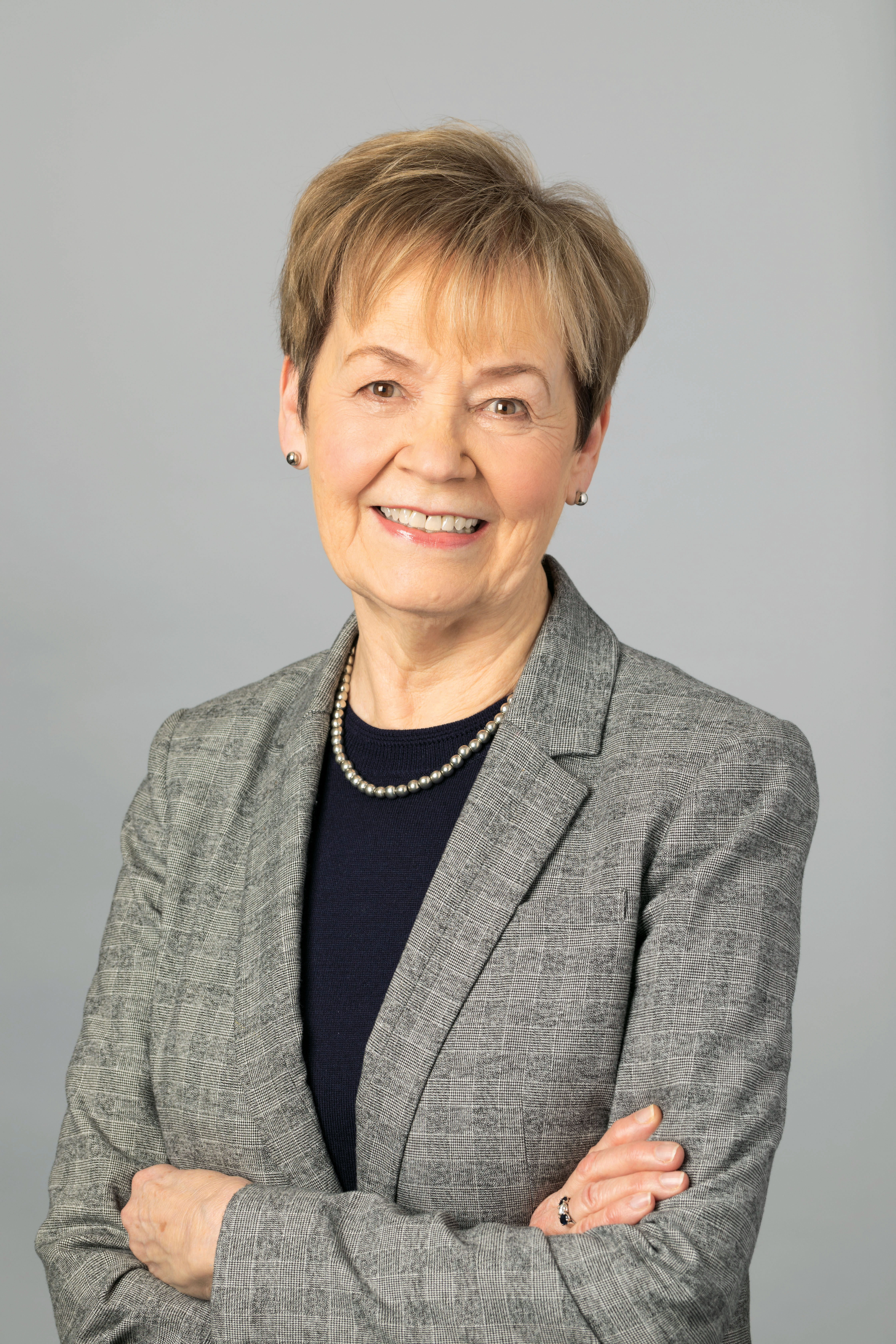Share this page
This section provides updates on licensing and qualification requirements, notification of Council resolutions and reports from various Council committees, including reports on accreditation and discipline matters.
When professional behaviour becomes too personal.
When is close too close? Are students who look to their teachers with absolute trust vulnerable? And how vulnerable are teachers who, caring too much, are in danger of overstepping professional boundaries?
Some educators, acting out of care for their students, intervene personally yet inappropriately. Others – rare though they may be – don't care about student well-being and are, in fact, "grooming" them for a future sexual relationship. The difference is intent, which is often determined by police, employers, the College and the victims themselves in hindsight.
It's up to Ontario Certified Teachers to heighten their awareness to protect students and prevent professional assistance from becoming too personal.
The College's most recent advisory, Professional Misconduct of a Sexual Nature, can help, as can the Ethical Standards for the Teaching Profession upon which the College's advice is predicated. The advisory provides a self-reflective framework to help Ontario Certified Teachers assess their knowledge and understanding, and to guide their practice. Additional guidance follows.
In its landmark study Child Sexual Abuse by K–12 School Personnel in Canada, the Canadian Centre for Child Protection (CCCP) reports that, between 1997 and 2017:
Grooming has been defined as a conscious, deliberate and carefully orchestrated approach by the offender. According to the CCCP, it involves "manipulating the perceptions of children and adults around children to gain their trust and cooperation. It is also used to normalize inappropriate behavior through desensitization, to reduce the likelihood that a child will disclose, and to reduce the likelihood that a child will be believed if they do tell."
One aspect of grooming may be to identify and target children and students who are needy, have low self-confidence or are isolated. Technology and social media may make grooming harder to detect. According to the International Centre for Missing & Exploited Children, "The grooming of children for sexual purposes through the Internet and related technologies is a growing problem worldwide, putting countless children at risk for sexual abuse and exploitation."
"Grooming" isn't a term used in Ontario legislation and it is difficult to define because it can include many different behaviours. However, it does appear in professional discipline matters, and elements of grooming behaviour are recognized in the Criminal Code. Offenders prepare students for sexual abuse later by gaining their trust, and sometimes the trust of the adults around them, as well. It often begins with friendship, moves to touching (such as back rubs), escalates to sexual touching and creates emotional dependency leading to abuse.
Consider what to look for in students and adults, and seek help or advice if you notice a combination of troubling signs. This may include students':
In adults, pay attention to the frequency and intensity of behaviours such as:
Know what's going on around you. If you see something, act. Professionally, you have a duty to report when you suspect the abuse of a student. It's the law. And it's non-negotiable.
Financial support is on the way for the counselling of sexually abused students.
Students who have been sexually abused or who have been involved in child pornography by an Ontario Certified Teacher can apply to the College to receive up to $16,060 to defray the costs of therapy, counselling and related medicinal treatments.
The College instituted a program on January 1, 2020, to receive applications as per Ontario legislation.
College Council considered additional policy language at its December 5–6, 2019, meeting and is expected to vote in March on a regulation.
Following legislative changes early last year, the Ontario College of Teachers Act now requires the College to make funding of up to $16,060 available to victimized students, their parents, guardians and siblings in connection with allegations of sexual abuse or acts involving child pornography.
The Ontario College of Teachers Scholarship Program recognizes and supports excellence in teacher education. That's why each year the College awards three scholarships to assist in the education of future teachers.

Mia Kakebeeke, teacher candidate in the consecutive education program at the University of Ottawa.
Mia Kakebeeke lives with passion and purpose. As a mother of three boys, a coach, an accomplished CrossFit athlete (she placed 25th in an international competition) and a student, she begins her day hours before anyone in her home is even awake; reading, studying, coaching and training.
She started her teaching degree at age 42, but she's been coaching fitness students for years, running a personal training business from her garage. She aims to make her students feel strong and unstoppable. Her motto? Failure is a stepping-stone to success: It refines us. It does not define us.
While in her teaching program, she explored the role of robotics and coding by borrowing kits and activities from the university resource centre. She would then try the projects with her own children to see how they responded and learned.
She credits her retired physical education teacher for igniting her drive and dedication. "I was an insecure child but masked it very well. His ability to see through this mask, and his support and care, helped me gain the self-confidence I needed in sports and in life," says Kakebeeke.
Over the years, Kakebeeke has been on the receiving end of many awards, including an academic scholarship from the University of Ottawa.
Fatima Ahmed, teacher candidate in the consecutive education program at Lakehead University.
People who know Fatima Ahmed describe her as kind, dedicated and passionate. She's a determined leader known for her nurturing manner and her commitment to social justice.
With her undergraduate degree in peace and conflict studies, she's gained work experience around the world: in the Canadian Arctic, in southern Africa, in the South Pacific, and in many rural and urban areas within Canada and the U.S.
She served as an adviser for HIV/AIDS civil organizations in Botswana and was the executive director for a non-profit youth centre in Inuvik. She has also worked with community-based projects in support of women's rights and youth activism.
During her teaching practicum, Ahmed was recognized as someone who models inclusive, respectful behaviour, staying calm and open-minded even in situations of high stress and conflict.
Ahmed spent her early years in Pakistan and remembers one influential elementary school teacher in particular, who always encouraged students, gave them opportunities to practise new skills and celebrated their achievements.
She has received numerous awards and scholarships for her efforts in support of peace and social justice, including the Combating Hate, Advancing Inclusion award from the Michaëlle Jean Foundation, in Ottawa.
Jordan Cascagnette, teacher candidate in the consecutive education program at Nipissing University.
As an accomplished cross-country skier, Jordan Cascagnette has a deep understanding of the value of hard work, commitment to goals and teamwork – all of which will help him in his future teaching career.
As he transitioned from the role of athlete to coach, guiding skiers aged 10 to 20, he discovered the importance of understanding each person's unique perspective. During his teacher education program, he came to understand this idea even more deeply as he learned about differentiated learning and the classroom practices that support it.
Cascagnette has a reputation for being patient, personable, caring and hard working. As well, his research and statistics instructor at Nipissing University was impressed with his strong analytical and critical-writing skills and his ability to communicate his thoughts effectively.
Cascagnette fondly remembers his high school history teacher who would use stories from his own past to help facilitate learning. "He capitalized on many students' interest in travel by relating the course content to various adventures he'd had while travelling around the world," he recalls.
For his dedication and commitment to excellence, Cascagnette has received many awards over the years, including an Al Carfagnini Male Athlete of the Year distinction and the Dave Marshall Leadership Award, both from Nipissing University.
PHOTOS: André Van Vugt, Giantvision Photography

Paul Picard, OCT, was appointed in December 2019 as Interim Deputy Registrar of the Ontario College of Teachers.
A native of Essex County, Paul retired in 2017 from the Windsor-Essex Catholic District School Board after a distinguished 41-year career with the board, the last seven as its director of education. As director, he oversaw 33 elementary, three middle and eight secondary schools, a Centre for Excellence and an adult education program all serving 20,200 students with a staff of 2,078.
Certified to teach in 1976, Paul has served as a teacher, vice-principal and principal at various schools. Later, as a superintendent, he was responsible for human resources and facilities services. He holds M.Ed. and B.Ed. degrees from the University of Windsor and a BA from York University, and has extensive experience in labour relations, having negotiated collective agreements on behalf of management, union affiliates and support staff across the province.
During his tenure, the board's student achievement scores and graduation rates rose steadily, schools were consolidated to devote more innovative programs to classrooms, three middle schools began, numerous new academy programs started, and international student enrolment increased significantly. He was also an architect of the Muskoka Woods Leadership Development program. More than 30,000 Grade 8 students have participated in the four-day, three-night program that combats bullying and fosters positive mental health, self-worth and well-being.
Paul guided the board through its most tumultuous years and financial difficulties caused by declining enrolment. He was awarded the J.F. Johnston Outstanding Educator Award by the Windsor-Essex Catholic District School Board's Catholic Principals' Council of Ontario for his efforts to meet the needs of all students, especially those most vulnerable.
Paul received a Government of Ontario Award for Outstanding Contributions to Amateur Athletics and was chair of a Ministry of Community Social Services Multi-Year Planning Committee for Windsor-Essex County. He coached the national champion Windsor Juvenile Selects Baseball Club, and has volunteered to help food banks and disadvantaged children.

The Council welcomes new Council member Tim Kwiatkowski, OCT, who was appointed to Council in December 2019 in the English-Language Roman Catholic Board – Elementary position for the balance of the current term.
A Grade 8 teacher with the Simcoe Muskoka Catholic District School Board, Kwiatkowski began his career as an educational assistant in Alliston, Ont., in 1999. Since then, he has taught kindergarten and Grades 2 through 8.
Kwiatkowski served on the OECTA Simcoe Muskoka elementary executive council for three years, has been teacher-in-charge, and was on Ontario's Education Quality and Accountability Office marking team. To remain current and relevant in his practice, and inspiring to students, he likes to pilot technology initiatives and programs in his classes.
Before becoming a teacher, he worked as a marketing professional in the private sector.
Certified to teach in Ontario in 1999, Kwiatkowski earned a B.Ed. from the Ontario Institute for Studies in Education/University of Toronto, and a bachelor of business administration from Michigan's Northwood University.

The College welcomes new Council member Wanda Percival, who was appointed to Council in December 2019.
Percival is a retired principal from the Trillium Lakelands District School Board. A Lindsay, Ont., resident, she worked as a teacher, vice-principal and principal between 1983 and 2006 with Trillium Lakelands, the last eight years in the latter role.
Pervival served as an education officer at the Ministry of Education between 2006 and 2010, and is vice-chair of Ross Memorial Hospital and chair of its Quality Committee. She was a member and chair of the board of Victoria County Career Services and, in May 2019, was appointed to Kawartha Lakes' Police Services Board.
Percival has a bachelor of applied arts from Ryerson University, a BA from Trent University, and received an M.Ed. from the Ontario Institute for Studies in Education/University of Toronto. She was certified to teach in Ontario in 1967 and retired her membership with the College in 2014.

The College welcomes new Council member Jennifer Wyatt, who was appointed to Council in December 2019 in the Private School position for the balance of the current term.
Wyatt is the Head of Junior School at the Trinity College School in Port Hope, Ont., and a facilitator and course developer at York University. As a leader in education, Wyatt focuses on student success, rigorous programming, and professional development and the growth of teachers. She has worked 12 years in private and independent schools as principal, vice-principal, curriculum director, divisional co-ordinator and teacher.
Wyatt has also worked in public schools at the elementary level as a teacher, a lead teacher of community programs, a junior math strategy trainer, and as a key teacher in an early years numeracy project. In addition, Wyatt has served as an education officer with the Education Quality and Accountability Office, a teacher liaison for the Master of Teaching program at the Ontario Institute for Studies in Education/University of Toronto, and a Principal's Qualification Program facilitator and course developer.
Wyatt was certified to teach by the College in 2001. She earned a B.Ed. from the University of Ottawa and a M.Ed. degree from the University of Toronto.